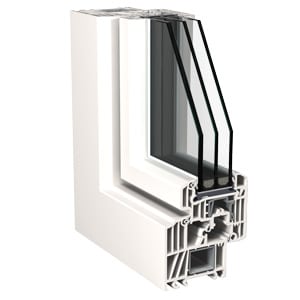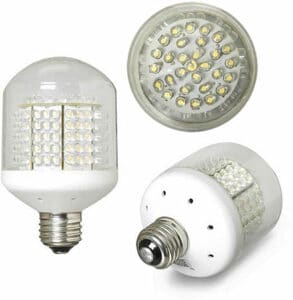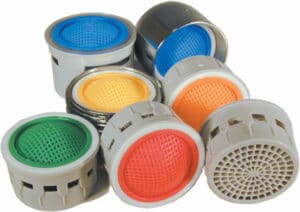People take steps to make their houses more environmentally sustainable because of values and value. Their values provide them with the motivation to reduce their ecological and carbon footprints and to help
provide their progeny with a cleaner, greener world. Sustainability,
after all, means meeting our current needs without making it more
difficult or even impossible for future generations to do so.
Implementing green ideas into houses is also a commonsense way to save
money and to make those homes more comfortable.
Tightening the Envelope

power plants, make homes more comfortable, and reduce your power bills
significantly. One major way to do this is by tightening your house’s
envelope, which is what separates its interior from the outside
world. Start by closing off air leaks with caulking and weather
stripping, installing double glazing in all windows, and then insulating
everything you can. Put up insulated curtains or blinds. Insulate all
walls, floors, ceilings, and heating ducts, your attic or crawl space,
and your hot-water cylinder. Then enjoy a warm, draft-free home in the
winter and a naturally cool, dry one in summer, while your lower energy
costs make your investment pay for itself.
Other Green Ideas For Saving Energy

compact fluorescent or LED light bulbs. Turn off all electronic
equipment when not in use – never leave anything on standby or pause for
long. Choose energy-efficient appliances and heating systems, the
latter with programmable thermostats.
Green Ideas For More Sustainable Water Use
Install such water-conserving fixtures as low-flow shower heads,
ultra-low flush toilets, and tap aerators to reduce your house’s impact
on wells and water-treatment plants. Solar water heating increases both
water and energy efficiency. Alternately, point-of-use continuous-flow
hot water systems save enormous amounts of money and eliminate the need
to store insulated hot water in a cylinder. If possible, collect
rainwater for non-potable use and install systems that recycle
greywater from your drains to irrigate your garden and, if
properly treated, to flush your toilets and even wash your car.
Reducing Waste

what goes to the landfill and to provide your garden with high-quality
organic fertiliser. A bidet in the loo helps to reduce or eliminate the
use of toilet tissue, thereby reducing pressure on sewerage and
wastewater treatment plants.
The Cost
Although making a house more environmentally sustainable does involve
some investment, and efficient appliances, lighting, hot-water systems,
and so on cost more than traditional approaches, some studies have
indicated that the savings over the long term can be as much as ten
times the amount expended.
ecological ideas ecological ideas ecological ideas